Inclusive Design: An International Case for Good Design and Good Business
Table Topic Discussion
Discussion Leader: Jenna Mikus, PhD Candidate, QUT Design Lab
In this table topic session, the author leverages her international experience as an industry professional and PhD candidate in the built environment to facilitate a discussion about Inclusive Design (ID) from a global point of view. The session will begin with an overview of similar design principles—namely, Inclusive Design, Universal Design, and Design for All in addition to the less frequently used People-centred Design and Accessible Design terms. While these approaches are similar, there are differences among them, primarily due to their historical origins and evolution over time. To ensure consistent group understanding, we will review this nuance and provide the current corresponding definition of each term.
Following the introductory conversation, the primary focus of the session will be to discuss as a group similarities and differences among terms, highlight positive and negative aspects of ID-related projects (some which will be presented and some which will be sought out from participants), and review recent company and government policy changes that have been enacted worldwide for ethical and business purposes.
In addition to serving as a smart and fair way to design, Inclusive Design has become a global hot topic over the past five-ten years. Expert perspectives on this newfound popularity will be shared with the group and examined collaboratively in the context of the world and Australia in particular. By participating in this session, it is expected that group members will develop a better understanding of Inclusive Design-related terms, identify worst and best practices for implementation, and develop an appreciation for how and why Inclusive Design, as Design and Architecture Norway (DOGA) states, is a “low-cost, high return way to generate new ideas” and has therefore become “[not only about good intentions, but also good business]”.
